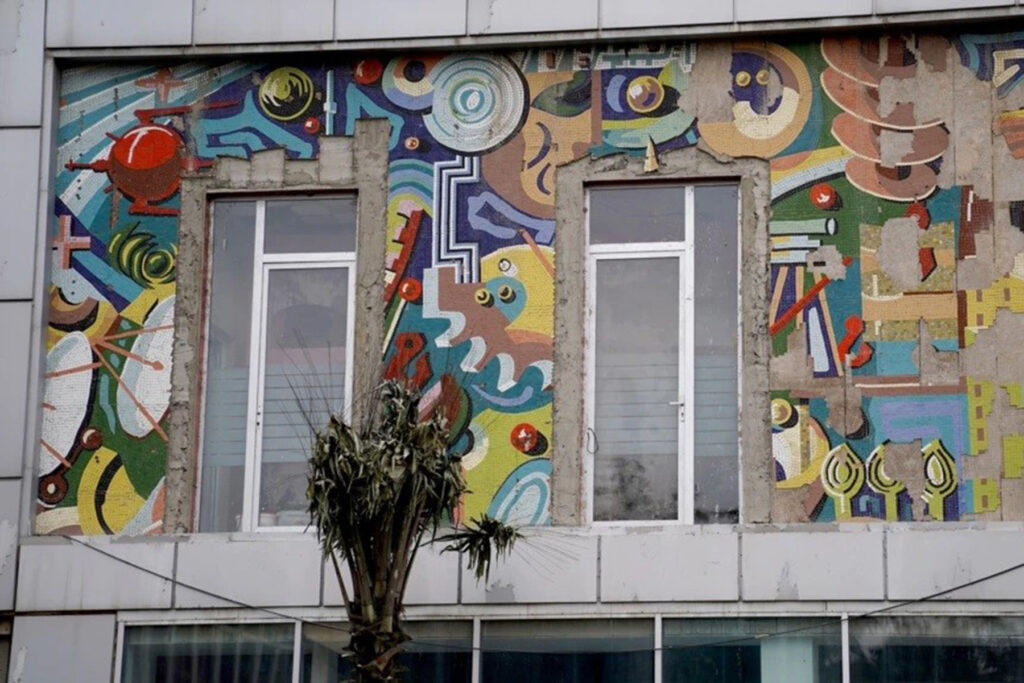Tbilisi City Hall has come under fire for allowing the owners of a former Soviet factory to install balconies and windows in the facade of a decades-old mosaic.
On 13 December 2021, Tbilisi City Hall’s architectural department granted permission to cut windows into the mosaics, which date back to the 1970s. The building’s owners went on to construct French balconies — false balconies attached to full-length windows — on the facade of the former Mion factory building on Beliashvili street in Dighomi, north Tbilisi.
The news that a notable mosaic from the Soviet era had been altered was first publicised on 13 November by Natalia Amirejibi, a researcher of mosaics and co-founder of the Ribirabo Foundation for the preservation and development of Georgian mosaics.
While the mosaic is not on the list of Georgia’s cultural heritage monuments, Ribirabo had previously informed Tbilisi City Hall that the mosaic was noteworthy and valuable to the city.
‘In 2021, employees of the marketing department of Tbilisi City Hall approached our foundation and asked us to provide them with a list and photos of the most important mosaics in Tbilisi, to create a tourist route using these mosaics, and to make a map with their locations.’
‘The material we provided was approved by the City Hall and, as far as I know, the brochure was printed the same year,’ writes Amirejibi, adding that the list they provided included the Mioni mosaic.
The Tbilisi City Hall website does not allow published brochures to be searched. However, the list of projects implemented by the City Service of Economic Development in 2018—2021 includes the printing of 12 tourist maps and brochures ‘on different topics’.
Negotiating restoration
In March 2018, Mona Lisa LLC, the company that owns the building, applied to the architectural department of Tbilisi City Hall to request permission to install windows and French balconies on the mosaic wall.
Approval was granted in April of that year, and in 2021, the company received approval for an updated project proposal submitted to the City Hall Architecture Department. It is not known precisely when construction began.
Two days after the mosaic’s alteration gained public attention, the vice-mayor of Tbilisi, Irakli Khmaladze, said that if the mosaic had the status of a historical monument, ‘stricter regulations would have applied’.
‘As for what we are going to do now, based on its visuals and public interest, Tbilisi City Hall is negotiating with the owner to restore the facade,’ Khmaladze said.
In her original post, Amirejebi wrote that the issue was not just about ‘damage to the mosaic panel but also about the complete destruction of a work of art’.




 17 November 2022
17 November 2022



